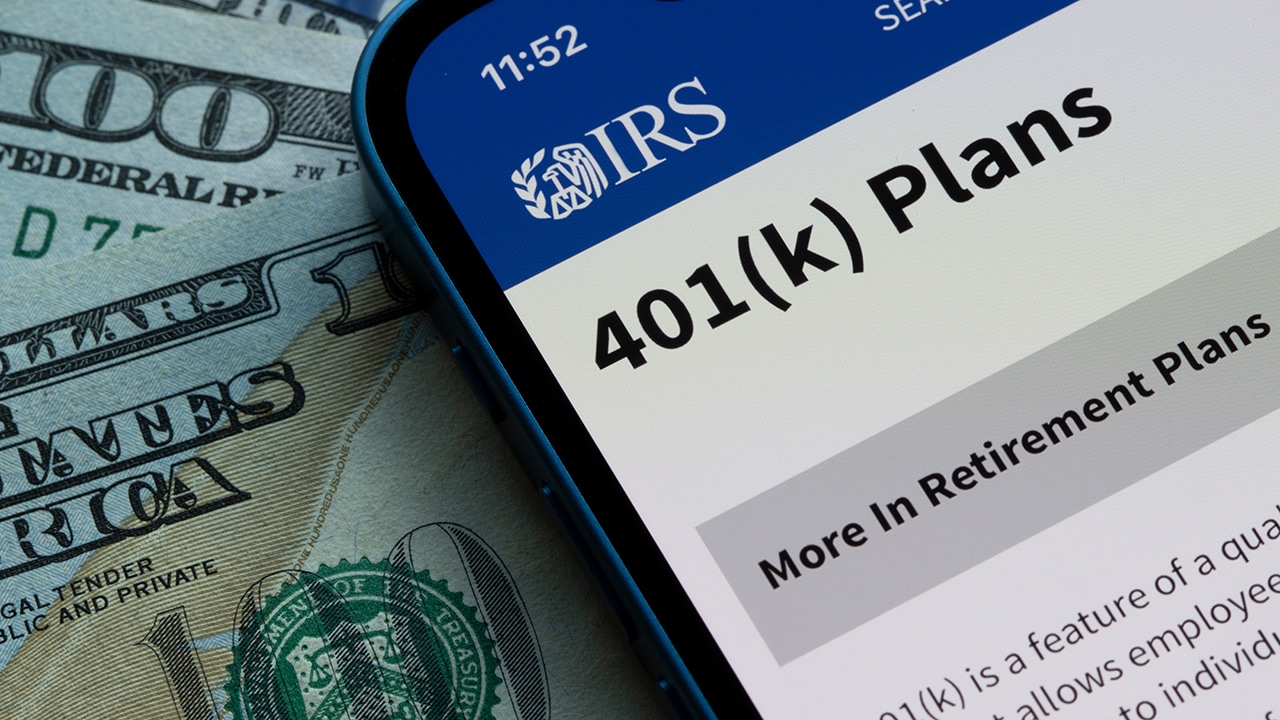Dreaming of retiring early? It’s a bold and achievable goal, but it requires smart financial strategies. Take a look at these 25 budgeting hacks that will help you maximize your savings, cut unnecessary expenses, and fast-track your journey to a leisurely retirement.
1. Automate Your Savings

Set up automatic transfers straight to your savings each month. This strategy ensures a portion of your income consistently goes towards retirement, making savings a non-negotiable part of your financial plan. It removes the temptation to spend what you should be saving and helps build your retirement fund steadily and effortlessly. Over time, the smallest contributions can grow significantly thanks to the power of compound interest.
2. Embrace the 50/30/20 Rule

Adopt the 50/30/20 budgeting rule for a balanced financial approach: allocate 50% of your income to necessities, 30% to wants, and 20% to savings. This simple yet effective strategy ensures you cover all your bases – from daily living expenses to leisure activities, while steadily building your retirement savings. It’s a practical way to ensure you save enough without feeling overwhelmed or deprived.
3. Downsize Your Living Space

Downsizing to a smaller home or apartment can substantially reduce your monthly expenses. This move cuts down on utilities, property taxes, and maintenance costs. You can then redirect the money you save into your retirement savings. Downsizing is about embracing a more financially efficient lifestyle that prioritizes your future financial security.
4. Eliminate High-Interest Debt

High-interest debt, especially from credit cards, can significantly hinder your savings potential. Work on paying off these debts as quickly as possible to avoid the high cost of interest. Once you get rid of these, you can redirect the funds previously used for payments directly into your retirement savings, accelerating your financial growth and reducing financial stress.
5. Master the Art of Thriftiness

Embrace thriftiness in your daily life. Becoming a savvy shopper who hunts for discounts, uses coupons effectively, and isn’t hesitant about buying second-hand can lead to substantial savings. Each dollar saved on day-to-day expenses can be redirected into your retirement fund, bringing you a step closer to a comfortable retirement.
6. Cook at Home

Regular dining out can significantly eat into your budget. Cooking at home is a healthier and more economical option. Embrace meal planning and batch cooking to save time and reduce food waste. The money you save by eating at home can be added to your retirement savings, making a significant impact over time.
7. Cut the Cable

Consider cutting the cable cord. So many high-quality and more affordable streaming services are available, so you can significantly reduce your monthly entertainment expenses. This reduction in costs can be redirected into your retirement savings, contributing to your financial well-being in the long term.
8. Use Public Transportation

If feasible, use public transportation instead of owning and maintaining a car. It can bring you substantial savings on fuel, maintenance, insurance, and parking fees. You can channel the money you save by opting for public transit into your retirement savings, increasing your financial security in the long run.
9. Avoid Lifestyle Inflation

As your income grows, resist the urge to increase your spending proportionally. This phenomenon, known as lifestyle inflation, can significantly hinder your ability to save for retirement.
By maintaining a steady lifestyle and expenses, even as your income rises, you can dramatically boost your savings rate. This kind of discipline is key to achieving financial independence and a comfortable retirement.
10. Maximize Retirement Account Contributions

Maximizing contributions to your retirement accounts is crucial, especially if your employer offers a matching contribution. It’s essentially free money that boosts your retirement savings. Take full advantage of this benefit by contributing at least enough to get the full employer match, as it can significantly increase your retirement funds over the years.
11. Create a Zero-Based Budget

Adopt a zero-based budget, where you allocate every dollar of your income to a specific job. By ensuring that your income minus your expenses equals zero, you’re maximizing your savings potential. This budgeting method helps identify and cut unnecessary expenses, allowing you to redirect more funds toward your retirement savings.
12. Embrace Minimalism

Embracing a minimalist lifestyle has a big impact on your finances. You can significantly reduce your expenses by focusing on necessities rather than desires. Practicing minimalism simplifies your life and frees up more resources for your retirement savings, helping you achieve financial security faster.
13. Take Advantage of Tax Breaks

Make sure you’re aware of and taking advantage of all the tax breaks available for retirement savings. Contributions to traditional IRAs or 401(k)s often come with tax deductions, reducing your taxable income. Utilizing these tax benefits can increase the amount you can save for retirement each year.
14. Implement the ‘Pay Yourself First’ Philosophy

Adopt the ‘pay yourself first’ philosophy. Before you start paying bills or spending on leisure activities, allocate a portion of your income to your savings. Treating your savings like a mandatory expense ensures consistent and robust growth, helping you build a substantial nest egg for retirement.
15. Seek Passive Income Sources

Explore ways to generate passive income. This could be anything from investing in dividend-paying stocks or rental properties to selling digital products. Passive income streams can significantly boost your retirement savings without requiring a proportional increase in your active work hours.
16. Reduce Energy Costs

Being energy-conscious can lead to substantial savings on utility bills. Implementing energy-efficient practices and devices, like LED bulbs, smart thermostats, and energy-efficient appliances, can lower monthly expenses. You can funnel this extra cash into your retirement savings, compounding over time to a considerable amount.
17. Prioritize Experiences Over Things

Shift your spending focus from material possessions to experiences. Spending on experiences like travel, courses, or hobbies often brings more lasting happiness and fulfillment than buying things. You’ll find that experiences enrich your life in ways that possessions can’t, and they typically come with less financial and emotional burden.
18. Use a Cash-Only Budget

Adopting a cash-only budget for daily expenses is a powerful tool in managing your finances. It’s a tangible way to see your money and can significantly curb overspending. When you physically hand over cash and see it depleting, you become more aware of your spending habits and make more thoughtful purchasing decisions.
19. Track Every Penny

Vigilantly track your spending to clearly understand where your money goes. This habit can be eye-opening, revealing hidden areas where you can cut back. Regularly monitoring your expenses helps identify patterns and unnecessary expenditures, allowing you to adjust your spending habits more effectively toward retirement savings.
20. Opt for Affordable Vacations

Choose cost-effective vacation options over expensive getaways. Activities like camping, exploring local attractions (staycations), or visiting family can offer as much enjoyment and relaxation as lavish vacations. These budget-friendly alternatives can significantly reduce your spending without compromising on the fun and restorative aspects of taking a break.
21. Avoid Impulse Purchases

Implement a waiting period for all non-essential purchases. This pause can provide time to consider whether you really need or want the item. The initial impulse to buy often fades, saving you a significant amount of money. This practice encourages mindful spending and can be a powerful tool in avoiding unnecessary expenses.
22. DIY When Possible

Before outsourcing tasks, consider if you can do them yourself. DIY solutions can lead to substantial savings, whether it’s basic home repairs, gardening, or personal grooming. Moreover, acquiring new skills can be rewarding and empowering, adding another value dimension to the DIY approach.
23. Rethink Your Subscriptions

Take time to evaluate all your ongoing subscriptions and memberships. If there are services or memberships you rarely use, cancel them. This practice can free up a surprising amount of money in your budget. Regularly reviewing your subscriptions ensures you only pay for what you truly use and value.
24. Increase Your Financial Literacy

Invest time in improving your financial literacy. Understanding the fundamentals of investing, savings, budgeting, and retirement planning empowers you to make more informed and effective financial decisions. The more you know about personal finance, the better equipped you are to grow your savings and secure your financial future.
25. Plan Your Grocery Shopping

Strategically plan your grocery shopping. Go to the store with a list and stick to it to avoid impulse purchases. Take advantage of sales, buy in bulk where it makes sense, and focus on purchasing items that you know will be used. Planned grocery shopping saves money and minimizes food waste, contributing to more efficient and economical household management.
More From Frugal to Free…
U.S. Budget Breakthrough: A Huge Step Forward Amidst Looming Shutdown Threat
Will Easing Inflation in America Continue?
The post Transform Your Finances: 25 Powerful Budgeting Tips for Early Retirement first appeared on From Frugal to Free.
Featured Image Credit: Shutterstock / Maridav.
The content of this article is for informational purposes only and does not constitute or replace professional financial advice.
